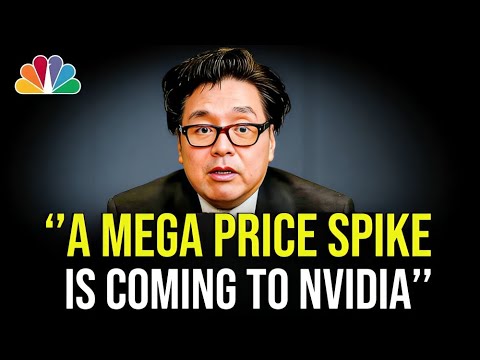The video discusses how a resilient macroeconomic environment and strategic AI investments by companies like Meta are driving growth, despite rising infrastructure costs and geopolitical trade restrictions that could impact Nvidia and other tech giants. It highlights that while trade tensions and export controls pose challenges, the overall outlook remains positive for Nvidia’s future growth if these issues are managed effectively.
The video features a discussion on the current macroeconomic environment and its impact on the stock market, particularly focusing on Nvidia and other tech giants. The speaker notes that fears of tariffs may resurface, but overall, the market is in a better position than earlier in April. Key indicators such as credit spreads, the VIX, and high-yield spreads have improved, signaling reduced volatility and a more stable financial environment. The economy appears resilient, and prospects for deregulation and better earnings growth in 2026 provide additional confidence. While the market has recovered significantly, the path to all-time highs remains challenging, but the risk-reward ratio still seems favorable.
The conversation then shifts to the role of artificial intelligence (AI) in driving corporate returns, with a particular emphasis on Meta (Facebook). Meta has demonstrated that AI investments can yield substantial returns, especially in advertising. The company has successfully used AI to enhance ad platform performance, increasing conversion rates by around 5% and boosting user engagement by about 6-7% on platforms like Instagram and Facebook. However, the speaker cautions against directly extrapolating Meta’s AI success to other companies, noting Meta’s unique scale and resilience in its advertising ecosystem.
The discussion also covers the rising costs associated with AI infrastructure, largely driven by global trade uncertainties and tariffs. Meta has increased its capital expenditure (capex) to build data centers and deploy AI hardware, with costs rising due to supply chain disruptions and tariffs. The speaker suggests that other tech giants like Amazon, Google, and Microsoft are likely to face similar cost pressures, which could lead to increased spending on infrastructure. Despite these rising costs, companies are leaning into AI investments because of the strong returns, although the political sensitivity around tariffs means companies are careful in how they address these issues publicly.
Further, the conversation touches on the broader implications of tariffs and trade policies, especially regarding chip exports and AI technology dissemination. The U.S. government is considering a country-by-country approach to export controls, which could complicate supply chains and delay the deployment of advanced semiconductors, including Nvidia’s products. Jensen Huang of Nvidia advocates for a more open diffusion of AI technology globally, emphasizing that restrictive policies could hinder innovation and competitiveness. The potential for delays and restrictions in exports, even to allies like the EU, poses risks to Nvidia’s growth and the broader AI ecosystem.
In conclusion, the video underscores the importance of AI as a growth driver amid macroeconomic uncertainties and geopolitical tensions. While companies like Meta are demonstrating the profitability of AI investments, rising infrastructure costs and trade restrictions present challenges. The evolving trade policies, especially around chip exports, could impact Nvidia and other tech firms’ expansion plans. Overall, the discussion suggests that despite headwinds, strategic AI investments and a resilient macro environment could position Nvidia and similar companies for significant future growth, especially if geopolitical issues are managed effectively.
